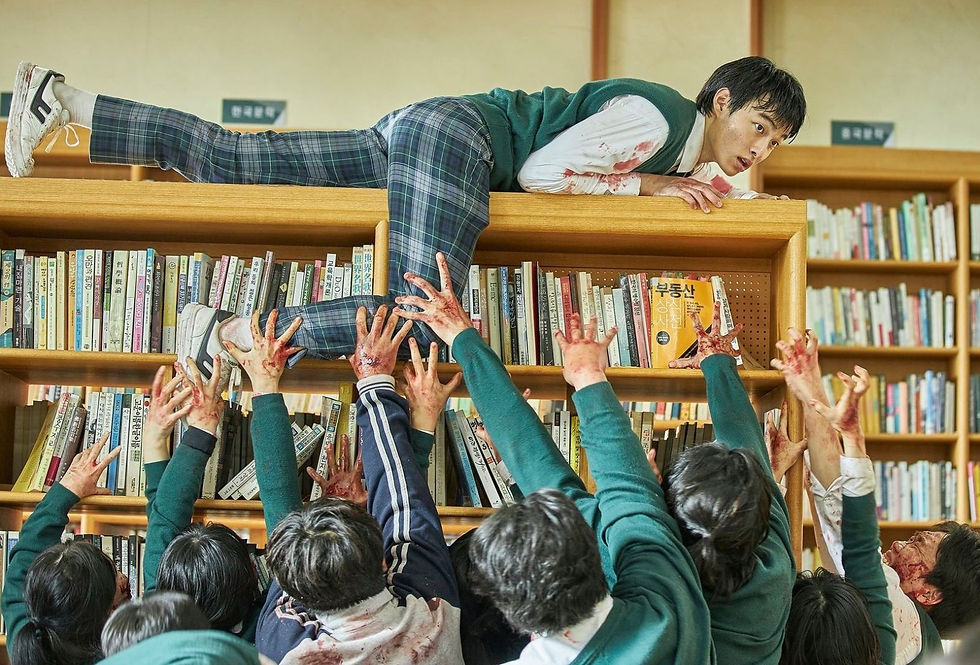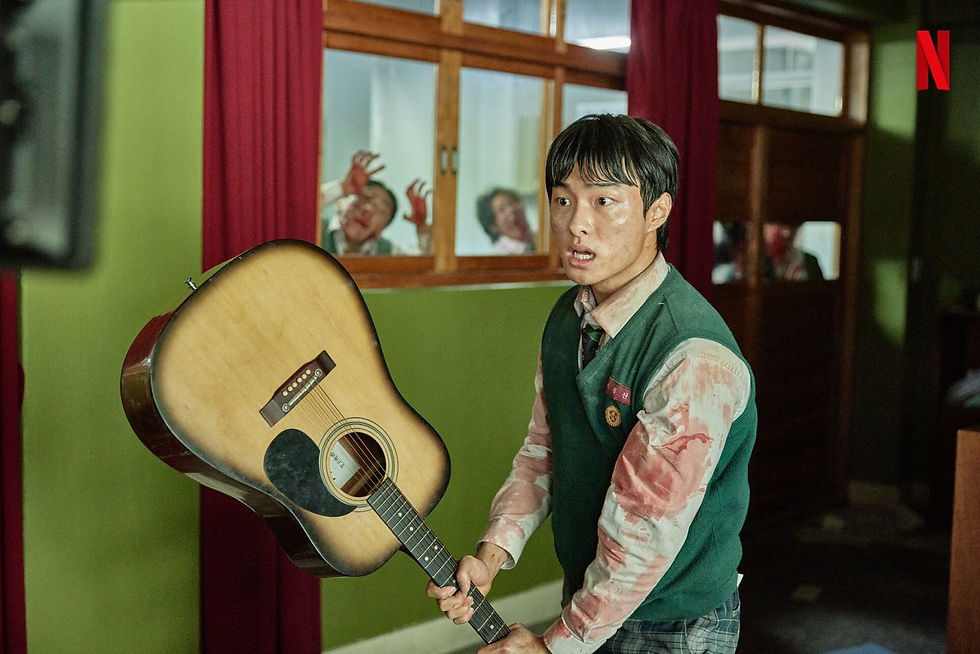Review of "We're All Dead" - a Korean zombie series that is not destined to become the new "Squid Game"
A bloody action game about survival in a school captured by the walking dead.
Grandpa Romero taught us to look deeper for a reason: zombies, like owls, are never what they seem. For the classic, who made films about the walking dead all his life, starving corpses became a cunning metaphor for racism, consumerism and a dozen other deadly sins. Years have passed, and now the romers (by analogy with Aesopian) language has turned from an intricate cipher into a banality: only Zack Snyder does not know that zombies symbolize the decline of society - as usual, this is just a beautiful cinematic image. Only Korean masters do not disdain old-fashioned overtones: after the “Train to Busan” dilogy, “We are all dead” rises from the graves - a cruel action series that draws an equal sign between the social structure and confrontation with the dead.

In this film adaptation of a webtoon (a digital comic designed to be read on a smartphone), the plot is like a fanfiction of a bloodthirsty genre geek. A father whose son suffers from bullying every day decides to inject his offspring with a special serum: that, they say, will make him stronger and help deal with bullies. However, everything does not go according to plan, and the miracle vaccine turns the boy into a ruthless cannibal, and the next day one of the laboratory mice will be released and infect a student of the local school: in just a few hours, there will be more dead than alive. While the whole city is drowning in torn guts, several teenagers manage to hide in the classrooms and think over a retreat plan - however, as the name suggests, it will not be successful for everyone.

In this whole anecdotal situation, of course, there is a moral: a person is an animal, survival is above all, and the strongest will always rest on the laurels of the winner. Social inequality, prejudice, bullying, the pursuit of success imposed by parents: “We are all dead” aims not at the eyebrow, but directly at the brain, because this is the only way to kill zombies. Like all the same "Train to Busan", the apocalypse here becomes only an occasion for a detailed near-social conversation: however, what usually sounds at the late kitchen table in smoky Khrushchev apartments. It does not matter - Korean mainstream films and series often walk on the verge between frankly vulgar common truths and unimaginably spectacular oriental formalism, and the triumph of the recent "Squid Game" only confirms the trend.
Although it’s not possible to call “We are all dead” in a visionary subtle way. In cramped school corridors with a crowd of zombies, the camera cannot turn around, and costume designers cannot come up with bright viral outfits with geometric shapes, which were worn by the villains from the same Squid Game. But there was work for stuntmen and stunt coordinators: there is, for example, an episode where the heroes jump from the dead on the library shelves, and after a couple of scenes the protagonists scatter enemies like rugby rivals. Like any b-movie (and “We are all dead” is it), the action choreography is more important here than common sense and even more so a harmonious story: if the survivors need to make another sortie from a cozy protected class, believe me, there will be a reason.

The Korean series takes on provocative genre scenes in a rush: childbirth during a zombie apocalypse, gouging out an eye with a phone, blood gushing from the neck - stories with such frenzied energy have not been released for a long time. However, the author's redundancy extends not only to horror, but also to teenage melodrama: all the most energetic episodes are buried in conversations about love (here each character likes someone and is afraid to confess his feelings even in the face of death) and teenage traumas.
Perhaps this is what will prevent "We're All Dead" from becoming a real hit. 12 hour episodes for a show whose plot is revealed in a maximum of 5 is a real test even for desperate serialomaniacs. About four dramatic lines with dozens of characters that still need to be recognized by character overlap each other and crush the gaping viewer like a snowball. “We are all dead”, it seems, does not fully decide what he needs and what not: he simply opens the encyclopedia of the genre and points his finger at all the names indiscriminately. Of course, it's fun if you love VOD aesthetics and cheap horror stories, but what to do and how to endure this bloody farce for the rest of the audience?
Commenti